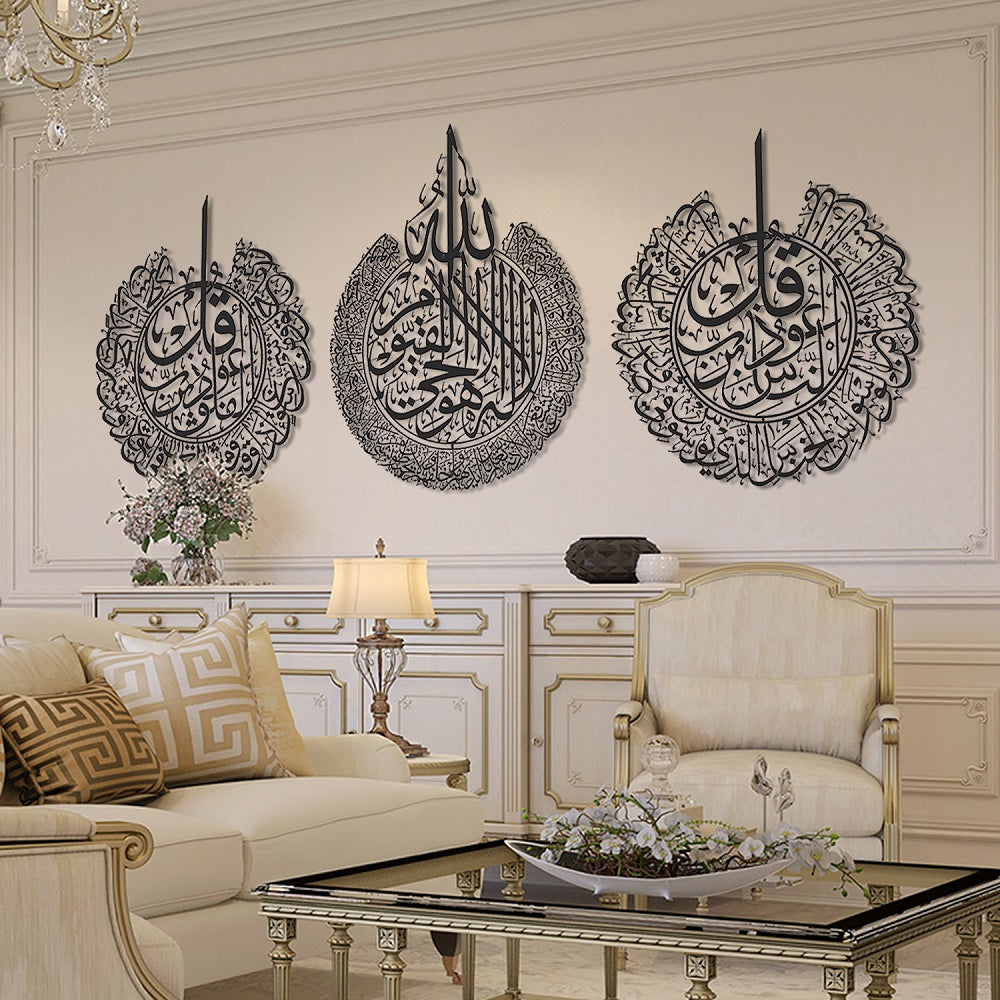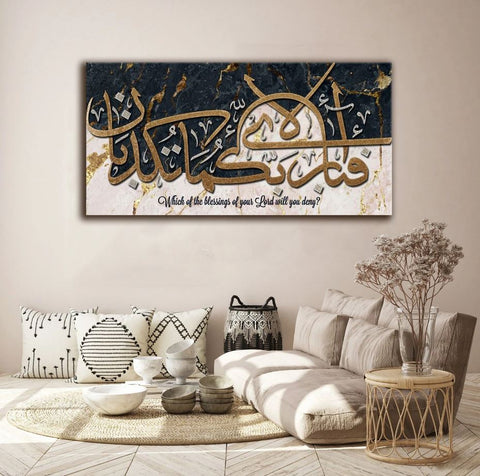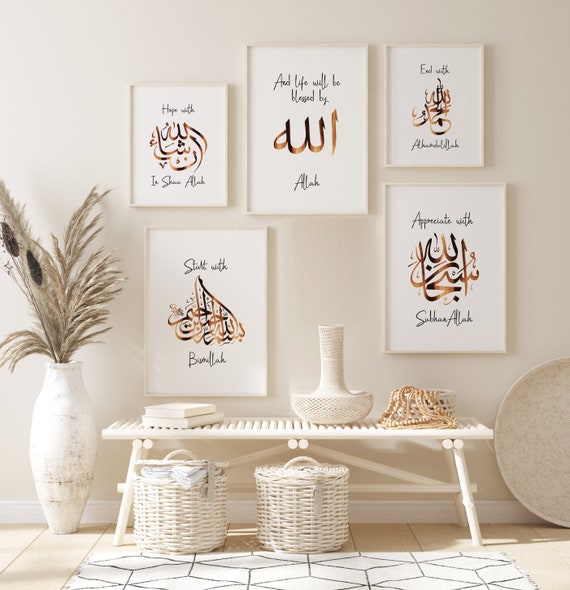As a lover of art and culture, I have always been fascinated by the profound beauty of Islamic art and the impact of Muslim wall decor in creating inviting spaces. This article delves deep into the world of Muslim wall decor, exploring its history, significance, styles, and how to incorporate it into your home. Whether you’re looking to create a serene reading nook or an inspiring prayer corner, this guide will help you transform your space into a haven of beauty and tranquility.
The Importance of Muslim Wall Decor
Islamic wall decor is more than just aesthetic; it’s an expression of faith, culture, and artistry. From intricate geometric patterns to mesmerizing calligraphy, Muslim wall decor serves several purposes, such as:
- Enhancing the beauty of living spaces
- Reflecting cultural heritage
- Creating a peaceful atmosphere for reflection and prayer
- Inspiring creativity and appreciation of art
Exploring Different Styles of Muslim Wall Decor

1. Islamic Calligraphy
Islamic calligraphy is a profound form of art that conveys messages of faith, wisdom, and spirituality. It’s often seen on canvases, plaques, and even murals. The beauty of the Arabic script can evoke emotion and inspire respect.
Popular Calligraphic Phrases
- “Bismillah” (In the name of Allah)
- “Alhamdulillah” (All praise is due to Allah)
- “Allahu Akbar” (Allah is the Greatest)

2. Geometric Patterns
Known for its complexity and harmony, geometric patterns in Islamic art serve as a reminder of the infinite nature of Allah. These patterns can be incorporated through wall decals, wallpapers, or framed art.
Incorporating Geometric Patterns
When considering geometric patterns, think about:
- Creating a feature wall with a bold geometric wallpaper.
- Adding 3D panels for a contemporary look.
- Using pillows and wall hangings that reflect these patterns.

3. Nature and Floral Motifs
The depiction of nature and floral motifs can bring warmth and life into a home. These designs often symbolize growth, beauty, and the creation of Allah.
Bringing Nature Indoors
- Choose wall art featuring floral patterns in soft, calming colors.
- Incorporate potted plants around art pieces to enhance the natural feel.

How to Choose Muslim Wall Decor for Your Space
Consider Your Space
Before you purchase any decor, consider the size, color scheme, and purpose of the room. A large calligraphic piece may be perfect for a dining area, while smaller geometric designs can enhance a cozy reading corner.

Personal Preference and Meaning
Select pieces that resonate with you personally. Whether it’s a quote that inspires you or a pattern that makes you feel connected, choosing decor that holds meaning enhances your enjoyment of the space.
Quality and Authenticity
Invest in quality pieces that reflect authenticity. Handmade items, whether they are paintings, tapestries, or ceramics, carry a story that mass-produced items simply cannot match.

Where to Find Beautiful Muslim Wall Decor
Today, there are numerous platforms to find Muslim wall decor. Here are some recommended sources:
1. Local Artisans and Markets
Visiting local artisans can yield unique treasures that cannot be found online. Consider markets or festivals that celebrate Islamic culture.
2. Online Retailers
| Website | Type of Decor | Price Range |
|---|---|---|
| Etsy | Custom and handmade | $$ – $$$ |
| Amazon | Wall art, prints, decor | $ – $$$ |
| Islamic Art Store | Authentic Islamic art | $$ – $$$$ |
| Local Islamic Shops | Books, art, decor | $ – $$$ |
Making Your Own Muslim Wall Decor
If you enjoy DIY projects, creating your own Muslim wall decor can be rewarding and personal. Here are some ideas:
1. DIY Calligraphy Art
With basic calligraphy skills, you can create stunning art pieces featuring your favorite verses. Use high-quality paper and ink for the best results.
2. Handmade Geometric Patterns
Cut out shapes from colored paper or cardboard to create a geometric design. Frame your design or use it as a backdrop for other decor.
3. Nature-Inspired Artwork
Gather natural materials such as leaves or flowers, press them, and then frame them to create beautiful wall art.
Pros and Cons of Muslim Wall Decor
Pros
- Enhances the aesthetic of your home.
- Promotes cultural appreciation and understanding.
- Provides a calming and serene atmosphere.
- Allows for personalization and expression of faith.
Cons
- May require a budget for quality pieces.
- Authenticity may be hard to verify in mass-produced items.
- Cultural sensitivity must be considered when displaying certain pieces.
Frequently Asked Questions (FAQs)
What materials are commonly used in Muslim wall decor?
Common materials include canvas, wood, metal, ceramics, and textiles. Each material brings a unique feel to your decor.
Can I use Muslim wall decor in non-Muslim settings?
Absolutely! Muslim wall decor can enhance any space, irrespective of religious affiliation, promoting beauty and cultural diversity.
What should I look for in authentic Islamic art?
Look for handmade items, quality craftsmanship, and reputable retailers. Authentic art often carries a story or cultural significance.
How can I maintain my Muslim wall decor?
Regular dusting and avoiding direct sunlight can help maintain the quality of your wall decor. For specific materials, follow care instructions provided by the artist or retailer.
Conclusion
Incorporating Muslim wall decor into your home is not just about beautifying your space; it’s about embracing a rich cultural heritage that inspires tranquility and reflection. From the elegant curves of calligraphy to the mesmerizing patterns of geometry, each piece you select adds a layer of meaning and beauty to your environment. I hope this guide has provided you with insights and inspiration to embark on your journey into the world of Muslim wall decor. Happy decorating!